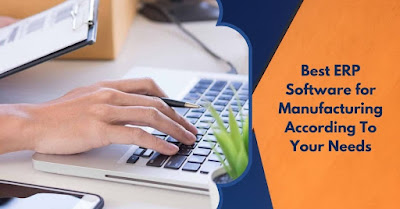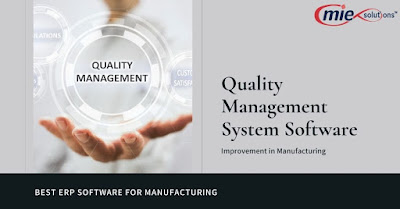How ERP Can Facilitate Supply Chain Management?
Enterprise Resource Planning (ERP) is known for its enhanced functionalities, taking up most of the business dimensions. If it is so, then why not use it for supply chain management (SCM)? Supply chain is an integral part of business and if the best ERP software is utilized then nothing is better than this.
SCM entails complicated procedures for which automated tools like an ERP become a must. Now, in this article, we will discover how ERP can shed off your load in supply chain management tasks?
Let’s begin the voyage.
Inventory Planning
First and foremost, you can get to know the amount of inventory available in stock. You will be able to categorize inventory and accordingly plan the usage of inventory in the manufacturing process. Further to this, you could accurately calculate the leftover stock.
Besides, you can accurately place the inventory in order with minimal chances of wasting the resources. These step-by-step automated processes can help you spend less time on acquisition of raw materials, their tracking, and planning.
Supplier Management
Suppliers are basically those people who provide raw materials to you. If you want to execute the procurement procedure adequately then ERP is your option. What it could do is generate supplier contracts, create demand order and order tracking.
After dealings with suppliers, you could also observe whether to continue with that resource or not? This could be done by evaluating supplier’s performance like cost, cycle time, bottlenecks, order date and delivery time, error rate, etc.
Transportation Management
Transportation management system (TMS) refers to the movement of goods from manufacturers to distributors and then to the customers. An ERP software having a built-in supply chain module lets you plan & execute your delivery management.
You can generate invoices and other essential documents. You can also create a transport order by entering items, weight and destination information, etc. This is how you can deliver the ordered products timely to the customers. Such automated planning and procedure are time-saving and provide required outcomes efficiently.
Risk Detection
While looking at each and every step of all the operations in real time, probability of risk of fraud becomes negligible. The managers or relevant personnel have the right to edit the data. The executed tasks take place within the boundary of said parameters and therefore you have to bear less costs.
Fraud detection and risk analysis in the supply chain with the help of ERP doesn’t remain an issue anymore.
Order management
Executing your orders by using ERP becomes simplified. From the very beginning of material requirement planning and inventory tracking, you have the exact details of your sales orders and fulfilment. Order generation and invoices all become automated.
This sort of order management gives you the flexibility and confidence to interact with your customers transparently.
Concluding Thoughts




Comments
Post a Comment